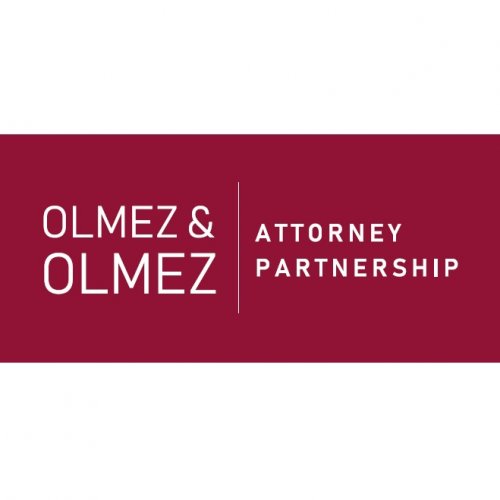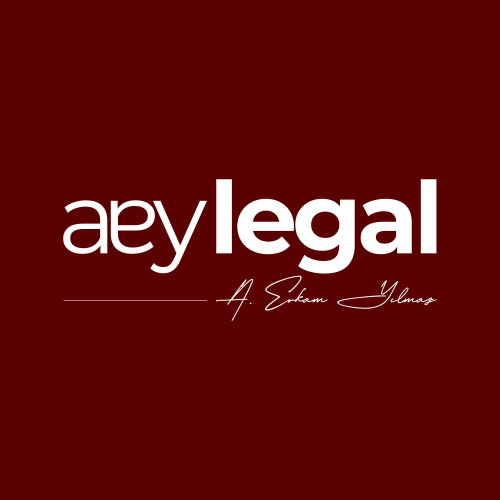Best Art & Cultural Property Law Lawyers in Kartal
Share your needs with us, get contacted by law firms.
Free. Takes 2 min.
List of the best lawyers in Kartal, Turkey
About Art & Cultural Property Law in Kartal, Turkey
Art & Cultural Property Law in Kartal, Turkey, is a specialized field of law that encompasses the creation, use, protection, and disposition of art and cultural property. This area of law is designed to preserve Turkey's rich heritage, ensuring that the rights related to works of art and cultural artifacts are safeguarded while promoting the country's historical and cultural legacy. Legal obligations encompass a wide range of issues, such as the restoration, trade, exportation, and repatriation of cultural items.
Why You May Need a Lawyer
Individuals and organizations may require legal assistance in Art & Cultural Property Law for various reasons. Common situations include disputes over ownership or provenance of art pieces, ensuring compliance when buying or selling cultural items, dealing with theft or illegal exportation, obtaining permits for excavation or restoration projects, and handling estate inheritance where art and cultural property are involved. A lawyer can provide essential guidance in navigating these complex legal issues and help protect your rights and interests.
Local Laws Overview
In Turkey, the legal framework concerning art and cultural property is strongly influenced by both national and international regulations. Key aspects include:
- The Law on the Protection of Cultural and Natural Property (Law No. 2863) regulates the protection, ownership, and management of cultural and natural assets.
- Exportation of cultural property is strictly controlled, requiring permits from relevant authorities.
- Any archaeological finds are considered property of the state, and unauthorized excavation is illegal.
- International treaties, such as the UNESCO Convention on the Means of Prohibiting and Preventing the Illicit Import, Export and Transfer of Ownership of Cultural Property, also apply.
- Local ordinances within Kartal may impose additional requirements, particularly concerning restoration and public display of cultural artifacts.
Frequently Asked Questions
What constitutes cultural property in Turkey?
Cultural property typically includes artifacts, artworks, and historical records that reflect the cultural heritage and history of Turkey. These can range from ancient relics to modern art pieces.
How can I legally purchase art in Kartal?
When purchasing art in Kartal, ensure that the vendor provides proof of provenance and the necessary legal clearances, especially for items considered cultural treasures under Turkish law.
Is it legal to export artwork from Turkey?
Exporting artwork, particularly items classified as cultural property, requires government authorization. Export without permission is illegal and punishable under Turkish law.
What should I do if I discover an archaeological artifact?
If you find an archaeological artifact, you must immediately report it to the local museum directorate. Retaining the artifact without declaration is illegal as such items are considered state property.
Can I restore a historic building in Kartal?
Restoration of historic buildings requires permissions from relevant municipal authorities, ensuring that the work complies with regulations aimed at preserving cultural heritage.
What are the penalties for illegal trade in cultural property?
Penalties for illegal trade can be severe, including substantial fines and imprisonment, depending on the value and significance of the cultural property involved.
How can I validate the ownership of an artwork?
Ensure that you conduct thorough due diligence, including verifying provenance records and obtaining legal assessments to validate title ownership.
What recourse is available if art is illegally removed from Kartal?
The Turkish government actively seeks the return of illicitly removed cultural items through legal channels and international cooperation agreements.
Do I need a permit to exhibit art in a public space?
Exhibiting art in public spaces generally requires permits from local governmental authorities, particularly for events involving large or culturally significant works.
Are there tax incentives for owning cultural property?
Turkey does offer certain tax incentives for owning items considered part of the national cultural heritage, which can include deductions or deferrals.
Additional Resources
For those seeking more information, consider reaching out to the following resources:
- Ministry of Culture and Tourism of Turkey
- Turkish Museums and Local Heritage Departments
- Legal firms specializing in Art & Cultural Property Law
- UNESCO National Commission for Turkey
- Local cultural heritage organizations and societies in Kartal
Next Steps
If you find yourself in need of legal assistance in Art & Cultural Property Law, consider the following steps:
- Consult with a lawyer specializing in cultural property law to evaluate your specific needs and case details.
- Gather any relevant documentation or evidence related to your art or cultural property concerns.
- Contact the local authorities or museums for guidance if it involves government-regulated cultural property.
- Stay informed about any legal updates or changes in the domain of Art & Cultural Property Law.
- Develop a plan of action with your legal advisor to proceed with your case or project efficiently.
Lawzana helps you find the best lawyers and law firms in Kartal through a curated and pre-screened list of qualified legal professionals. Our platform offers rankings and detailed profiles of attorneys and law firms, allowing you to compare based on practice areas, including Art & Cultural Property Law, experience, and client feedback.
Each profile includes a description of the firm's areas of practice, client reviews, team members and partners, year of establishment, spoken languages, office locations, contact information, social media presence, and any published articles or resources. Most firms on our platform speak English and are experienced in both local and international legal matters.
Get a quote from top-rated law firms in Kartal, Turkey — quickly, securely, and without unnecessary hassle.
Disclaimer:
The information provided on this page is for general informational purposes only and does not constitute legal advice. While we strive to ensure the accuracy and relevance of the content, legal information may change over time, and interpretations of the law can vary. You should always consult with a qualified legal professional for advice specific to your situation.
We disclaim all liability for actions taken or not taken based on the content of this page. If you believe any information is incorrect or outdated, please contact us, and we will review and update it where appropriate.









